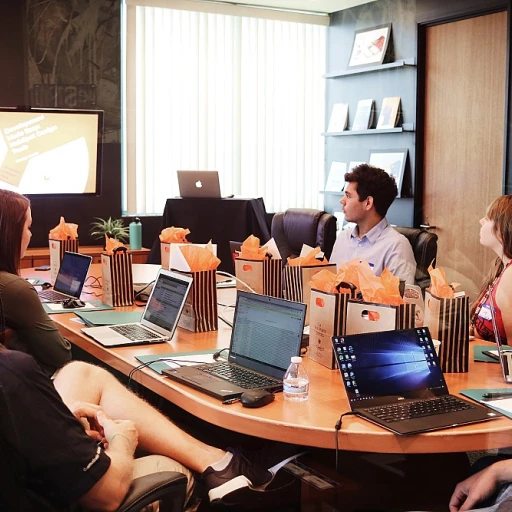
Understanding Auto Tier 1 Procurement
Grasping the Essentials of Auto Tier 1 Procurement
In the automotive industry, understanding the intricacies of Auto Tier 1 procurement is crucial for companies aiming to optimize their supply chain strategies. Tier 1 suppliers are those that provide components directly to original equipment manufacturers (OEMs). These suppliers play a pivotal role in the manufacturing process, delivering essential parts that contribute to the final assembly of vehicles.
The procurement process in this context involves not just the acquisition of raw materials but also the strategic management of supplier relationships. Automotive companies must ensure that their tier suppliers are reliable and capable of meeting the stringent demands of the industry. This involves assessing the suppliers' capabilities, quality standards, and their ability to innovate and adapt to new technologies.
Moreover, the procurement strategy must align with the broader business objectives, such as cost efficiency and sustainability. Companies are increasingly focusing on renewable energy and sustainable practices, which are becoming integral to the procurement process. This shift is not just about compliance but also about enhancing the long-term viability of the supply chain.
For those navigating the complexities of procurement, adopting a hybrid project management approach can be beneficial. This method allows for flexibility and adaptability, which are essential in managing the dynamic nature of supply chains. For more insights on this approach, you can explore navigating the complexities of hybrid project management.
As we delve deeper into the challenges and strategies associated with Auto Tier 1 procurement, it becomes evident that a comprehensive understanding of these elements is vital for achieving optimal results in the automotive supply chain.
Key Challenges in Auto Tier 1 Procurement
An Array of Complex Challenges
Auto Tier 1 procurement is a segment fraught with myriad challenges that significantly affect the procurement strategies of companies operating in the automotive industry. These challenges can impede the smooth functioning of the supply chain, thus demanding innovative solutions and real-time risk management.
One of the primary hurdles is the management of a diverse supplier base. Original equipment manufacturers (OEMs) and tier suppliers must engage with numerous suppliers of raw materials and components. The sheer volume of parts required in automotive manufacturing amplifies the complexity of supplier relationships. This intricate network necessitates comprehensive supplier evaluation, emphasizing quality, sustainability, and cost efficiencies.
Volatility and Market Dynamics
The volatility of raw material prices also represents a significant challenge. Fluctuations in costs can affect the cost efficiency of procurement strategies. Companies operating in the auto industry must maintain vigilance and agile approaches to mitigate these risks. Effective risk management in the supply chain involves not just monitoring prices but also ensuring the availability of materials to prevent disruptions.
Sustainability and Innovation
With a growing emphasis on sustainability, companies are navigating the complexities of adopting renewable energy practices while maintaining robust supplier relationships. As environmental regulations become stricter, automotive supply chains need to build strategies that align with these long-term objectives.
Digital Transformation
Finally, a significant challenge lies in effectively implementing digital transformation within supply chains. The integration of data-driven insights and digital tools is crucial for optimizing procurement processes. Automotive companies must adopt technologies that offer greater visibility across supply chains, enhance forecasting, and improve decision-making. Understanding the intricacies of navigating through complex project management can equip businesses with strategies to manage these digital transitions effectively.
Developing a Robust Supplier Relationship
Building Strong Supplier Partnerships for Success
In the ever-evolving automotive industry, forging strong relationships between Tier 1 suppliers and original equipment manufacturers is paramount. The dynamic nature of the automotive supply chain demands a procurement strategy that emphasizes collaboration and mutual growth among stakeholders. One of the key elements in developing effective supplier relationships is open communication. By establishing clear channels for exchanging information, both parties can ensure that expectations are well understood and potential issues are addressed promptly. This transparency helps in managing risks and allows for real-time decisions that benefit the entire supply chain. Furthermore, fostering trust through consistent and fair negotiations can pave the way for long-term partnerships that are advantageous for both suppliers and automotive companies. Regularly engaging with suppliers can also uncover opportunities for innovation, which can lead to cost efficiencies and improved quality of components. Sustainability is another significant factor to consider in strengthening supplier relationships. Automotive companies should prioritize working with suppliers who are committed to adopting renewable energy sources and sustainable practices. This not only reduces the environmental footprint of the automotive supply chain but also aligns with the growing consumer demand for sustainable vehicles. Finally, leveraging advanced data analytics tools can enhance supplier management and optimize procurement strategies. By utilizing data, companies can track supplier performance, assess potential risks, and make informed decisions that align with their business objectives. For more on this topic, you can explore the role of an interim controller in { enhancing procurement strategies }(https://www.chro-strategy.com/blog/the-role-of-an-interim-controller-in-chro-strategy).Cost Efficiency in Procurement
Driving Cost Efficiency in Procurement Strategies
In the competitive landscape of the automotive industry, achieving cost efficiency in procurement remains a pivotal strategy for Tier 1 suppliers and auto companies. As entities strive to manage a complex supply chain, ensuring cost-effectiveness is key to maintaining profitability and sustaining long-term partnerships. Understanding the dynamics of procurement within the Tier 1 automotive supply chain necessitates a focus on multiple factors:- Optimization Through Data: Utilizing data analytics to track procurement trends and analyze expenditure can greatly enhance cost efficiency. Real-time data allows companies to make informed decisions regarding supplier selection and procurement strategies that align with market trends and raw material pricing.
- Strategic Supplier Relationships: Building robust relationships with suppliers enables Tier 1 companies to negotiate better terms, achieve favorable pricing, and access quality automotive components. The procurement process benefits from collaborative engagements where both parties aim for mutual growth and risk mitigation.
- Sustainability Initiatives: Embracing sustainable practices within the supply chain doesn't only meet regulatory requirements but can also reduce costs. Leveraging renewable energy sources, optimizing manufacturing processes, and reducing waste contribute towards an economical and environmentally friendly operation.
- Leveraging Technology: The integration of advanced technology in procurement processes can dramatically increase efficiency. From automating procurement tasks to employing AI for predictive analytics, technology helps streamline operations and reduce overhead costs.
- Risk Management: Addressing risk in procurement is crucial for cost management. By implementing effective risk management strategies, companies can prevent disruptions within the supply chain, ensuring a stable supply of parts and components to meet OEMs' demands smoothly.













